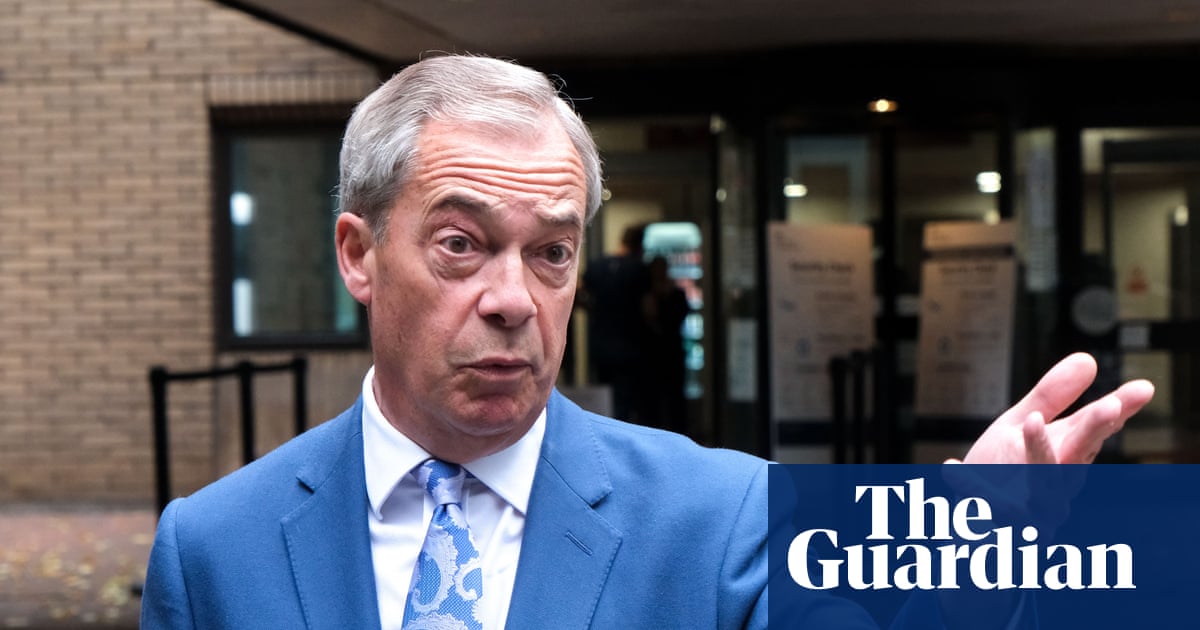With borrowing costs rising and western governments including the UK cutting their aid budgets, unsustainable debts are driving a development crisis across the global south.
In the latest evidence, Ethiopia last week faced the threat of being sued by its creditors in the English courts, after long-running negotiations about restructuring $1bn (£740m) of its debt collapsed.
In a number of other countries, including Zambia, Chad and South Sudan, private-sector lenders have strung out or disrupted efforts to restructure loans, with the process often taking years.
New analysis published as the International Monetary Fund and World Bank met in Washington last week, by the advocacy group Development Finance International (DFI), shows the scale of the burden.
It found that across the global south, debt servicing costs now soak up an extraordinary 45% of government revenues, or as much as 70% in low-income countries.
With interest rates high, governments are now spending three times as much on servicing their debts as they are on education, and more than four times as much as on health.
That is a development crisis, because it limits the progress countries can make to improve their citizens’ lives. It also risks becoming a crisis of democracy, if politicians of every stripe are subject to the same crushing financial constraints.
Campaigners and developing nations are demanding radical reform. With South Africa chairing the G20 this year, many had hoped to see progress. But while the group of leading nations acknowledged the scale of the problem in a ministerial declaration in Washington last week, it offered no concrete solutions.
People with knowledge of the talks that led to the statement said a more ambitious proposal, to task the IMF with examining ways of giving more help to countries in crisis, was rejected by China.
“There’s nothing in the declaration that will make a difference to the lives of people in poor countries,” said DFI’s director, Matthew Martin.
Patricia Miranda, global advocacy director of the Latin American social justice campaign group Latindadd, says the countries she works with are often judged by the IMF to have a sustainable debt burden, while to the public the burden feels anything but sustainable.
“When we have meetings with our members in Latin America they say, ‘How can you say that the debt in my country is sustainable? What does sustainable mean, if our lives are at risk, we don’t have access to public services, we don’t have clean water, we have food insecurity?’”
Reform of the IMF’s debt sustainability analysis – currently under review – is one demand made by campaigners who want to see the current multilateral system for debt relief, the G20 Common Framework, overhauled.
Once low-income countries qualify for the system, DFI argues that they should have debt repayments capped at 10% of revenues. This would help to “free up maximum spending room for countries to make progress on fighting inequality, climate and nature crises”.
Another widely backed demand is a change to the legal framework for private sector debt, much of which is issued under English law.
Championed by UK development charities, new legislation would prevent commercial creditors from receiving better terms than other parties in debt restructuring agreements; and stop them from suing debtor governments in the middle of a restructuring process, as is threatened in the Ethiopian case.
Senior figures in the Labour party in the UK initially showed some enthusiasm for this idea; but they appear to have backed away from it since a decision earlier this year to cut the government’s aid budget.
after newsletter promotion
Government insiders cite Treasury scepticism, with officials suggesting that such legal changes could have a chilling effect on private sector investment. Campaigners suspect lobbying by the financial sector.
One organisation arguing publicly against a similar legal change in the US is the Institute of International Finance (IIF). In Washington last week the group hosted a drinks party at the British ambassador’s residence, where Rachel Reeves gave a short speech, and the IIF’s president, Tim Adams, gave a longer one.
Despite reservations about legal reform, the UK has expressed some interest in acting as a convener on the issue of sovereign debt, with the chancellor setting up a London Coalition, to facilitate engagement with private-sector lenders.
But since February’s aid cut, from 0.5% to 0.3% of national income, the key focus for the UK’s development minister, Jenny Chapman, has been deciding where the axe will fall for overseas projects.
The results are expected to be announced in the coming months, with the UK withdrawing from some countries altogether. The cuts come as other countries, including the US, France and Germany, are also cutting aid.
Scant progress on global debt relief is expected next year, when the US takes on the G20 presidency. But the UK could take up the role in 2027, and campaigners are already mobilising to urge Labour to use it to fight for a better system.
Tim Jones, policy director at Debt Justice, said: “Debt relief is taking far too long and leaving countries at high risk of debt crisis. The UK must use its likely presidency of the G20 in 2027 to champion major changes, including deeper and quicker debt relief and a suspension of payments during negotiations.”
It is a knotty issue to confront, requiring deft politics. But in an era of diminished budgets, perhaps it could take Labour closer to its manifesto promise, of “regaining Britain’s global leadership on development”.
Miranda, of Latindadd, says: “What we keep hearing is: ‘It’s so tough, it’s so complex, this is the best we can achieve.’ But the way I say it is the other way around: the context is so tough that we need an inflexion point – now.”

.png) 2 hours ago
4
2 hours ago
4

















































